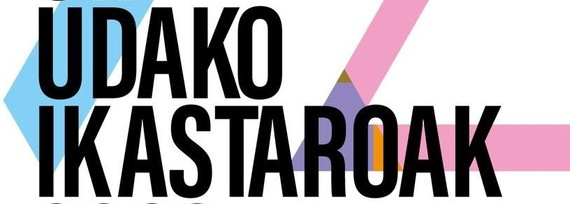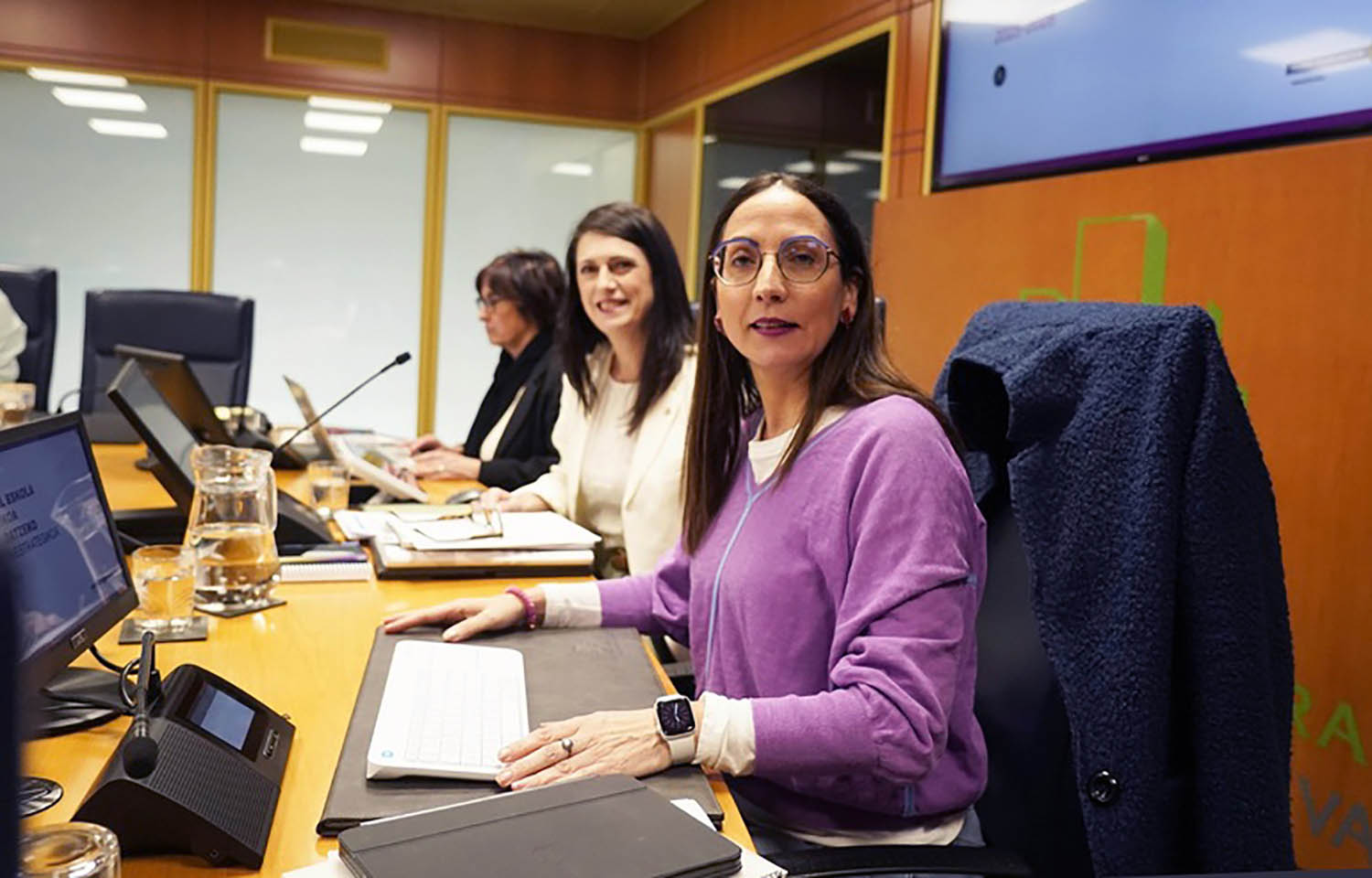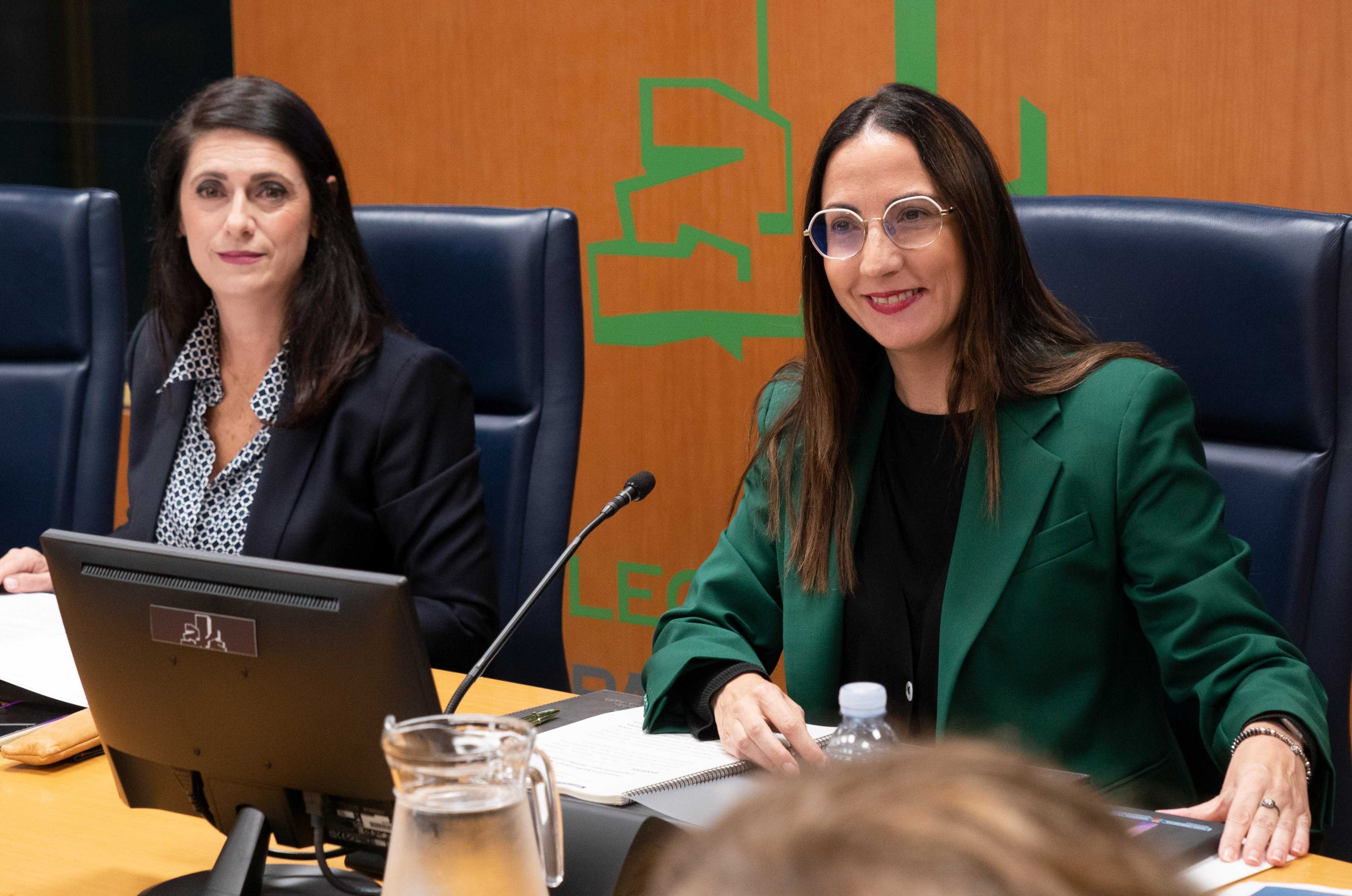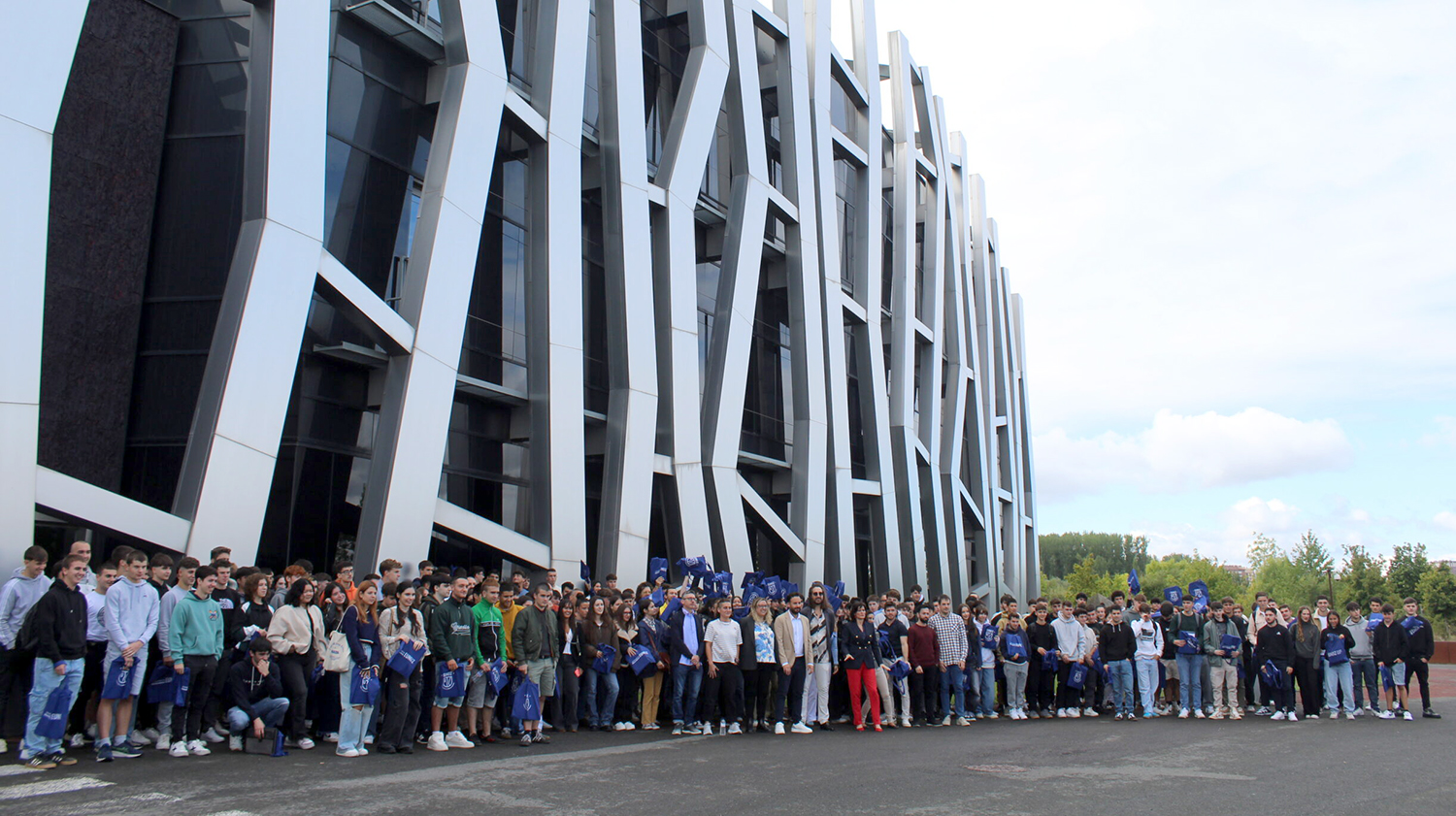The cracks caused by the university and the educational system
- Thousands of students are about to take the university entrance test. In our unbalanced society, education is always the last point of maturity and hope: symbol of equal opportunities, dream of the social lift. But actually, the education system doesn't go beyond the career that keeps the privileged and the oppressed. How do the filters that decide who will reach the goal in this career influence the gap between students? How many are the ones who are going to get to college and the ones who can keep college years? Why are there more and more private universities? What's behind the supposed meritocracy, grades and school failure?

Thousands of students from Euskal Herria will complete the EBAU (former selectivity) and the Lower in June. More than one will go with as many expectations as pressures, in order to be able to conduct preferred studies and achieve a good way of life. Linking the university with the idea of social advancement is not new, but Ibai Berezibar, from the organization Ikasle Abertzaleak, believes that in these moments of crisis it has become demystified, “and it shows that there are more and more people studying at the university, that there are more and more titles and masters, but that there is more unemployment and more precariousness”. Jon Arrieta of Ernai tells us: “The prestige of the University has come down, because with a degree you have nothing assured and precariousness has prevailed”. The UPV/EHU professor Jon Diaz says that the belief of the social elevator is maintained: “In the previous generation it was more evident, but there is still the social elevator, or people have at least that image, anyway, but you want to go to university. I am referring to the social perspective, because from an economic point of view we see that the labour market is very black in university.” However, we identified the university as a way to get better jobs and pay, according to Jaione Apalategi, a professor at the UPNA.
However, before addressing what it means to study in the university, what it leaves out and the role that private universities play, we will go back in the educational itinerary, as the imbalances and gaps between students do not start at 18 years of age. Although equal opportunities is a principle, the backpack that each student brings from home, the difference between centers (socio-economic reality, resources, pedagogy), rigid academicism… are factors of imbalance. “Education has to adapt to the needs of all children, but that’s not the case,” says Jon Díaz. What we generate with the values of academic notes and competition is a school failure, because the system is being cleaned up, and if we add social, economic, cultural problems…, look.”
Although Bologna reduced the length of the degrees, in practice the degrees are not faithful, then you have to do a master's degree and its cost is high
To the extent that the school is a reflection of society, also in education there are oppression and problems that occur in society, according to Jon Arrieta: “The educational trajectory is not a process that starts from scratch, it influences some factors from the beginning, and if you have special needs, in general this educational system does not provide guarantees to integrate and advance in the same way as the others”. The student movement of the ESO and the Ikama that is organized in the Baccalaureate is also of the same opinion, as Maialen Lago explains: “The educational system impels a profile of students with certain abilities, capacity to memorize, capacity to keep the attention seated for seven hours… but there are thousands of students who do not enter the required forms and are more condemned to failure. In this model between winners and losers, good grades are advanced, students who need help often do not receive that help at school, and those who have money will go to academia and private classes and advance faster.”
Ibai Berezibar considers that the gap is systemic and “the same nature of the capitalist educational system is exclusive because it does not prioritize the well-being of students and the transmission of universal knowledge, we only have to see how it expels the most vulnerable from the educational process”. According to Agurtzane Martínez, professor of Mondragon Unibertsitatea, “today, moreover, more than a few years ago, the school maintains the privileges and oppression of children with oppression. We all discursively say that the school has the function of balancing and revolutionizing this situation, but I would say that with our functions in many cases we maintain the situation and that children who do not have privileges have more insecurity in school, because their needs are not easily assumed”.
Ibai Berezibar: "The note is a social filter mechanism that only includes certain capacities and many economic conditions are hidden behind a note"
The false meritocracy and the school for the best “Whoever tries the most will succeed in life, that idea is also sold in education, but this idea does not have many factors in mind. The note, and in the general evaluation system, is a social filter mechanism, which only takes into account certain capacities (and not many more), is based on memorisation, and many economic conditions
are hidden behind a note: what is the situation of the house, if it can pay private classes, what are the infrastructures of its country…”, explains Ibai Berezibar. “Receiving help from parents, having resources, having access to after-school activities and maintaining stable affective relationships, being integrated… All of this will positively influence the student’s educational process and grades and vice versa,” says Jon Arrieta.
Upon the news that some schools swell notes, some students with more flexible curricula and evaluations, others walk under more demanding curricula and evaluations, and we ask the interlocutors for excellence, is rigor in some centers not a place for the best rather than for everyone? Professor of Philosophy, Tere Maldonado, told in Berria that “the situation that the teaching teams of public centers should handle when putting the students’ final note is a generous moral dilemma. They know that this note will compute it for the average grade, which will open or close opportunities for the student (for scholarships or higher education). They often know that the attached concerted centre, with which they compete to attract students, tends to exaggerate grades. So, is it right that our students leave the school with more concrete but sometimes lower grades?”
Professor Juan Karlos López-Mugartza has answered that he has heard more than once the word rigor in relation to public education, “but we follow the criteria established by the curriculum, because the curriculum is rigorous and it is difficult to lower the pressure”, having said this, “is it true that there are many people who stay on the road, therefore, should we be more flexible? The curriculum should be analysed, how it should be applied, if necessary, if the gap increases...” Not a few professors have claimed that the curriculum and the subjects to be taught should be lightened.
Juan Karlos López-Mugartza: "There are a lot of people on the way, what should we be more flexible? The resume should be analyzed, if it is fair, if the gap increases..."
Professional training failure? “If education is the institution to educate and create the workforce of the future, it will be transformed according to the productive needs
of capital. It is clear that the need to get the future worker used to simplified tasks has led to a simplification of the training received by the students, imposing from the very beginning the labor competences: in the ESO itself it is oriented towards Vocational Training, using as a filter note; it seems that Vocational Training is the alternative offered to those who do not adapt to the conditions of the educational system – Berezibar has criticized. Education does not focus on training but on creating cheap labour.” In Arrieta’s opinion, “failure is going to vocational training, going to university is the path to success.” “The university has been sacralized and people forget,” says Professor Jaione Apalategi, “looking for a certain status. Meanwhile, Vocational Training has been neglected, and Vocational Training is a training that is well prepared and shaped, which can converge with the skills and needs of some people and can be made as happy as a university”. In the same vein López-Mugartza told us: “How are we going to prestigious Vocational Training if we use Vocational Training that does not draw good notes to deviate it, to eliminate it?”.
Another door is the university, but the Bologna plan was a turning point: although it reduced the length of the degrees, in practice the degrees are not worth physis, then you have to do a master's degree and its cost is high (see data table at the end of the report). College years have increased and become more expensive, leaving many people out. In addition to tuition (just over 1,000 euros each course, undergraduate tuition), other expenses have to be met: photocopies, books, one-story rental or travel expenses, material in some studies… “If there are suspensions, you get more expensive the second tuition, if you don’t exceed it, the price is tripled… and to me the students have been crying, you can’t pay for that pending subject – it tells us. What you have to pay is little compared to the private, and yet there are a lot of people who can't pay and who go to the social department of our university. As Vice-Dean I have seen everything in the Public University of Navarra, the situation is sad, but we have not sent anyone home for money.”
Asked about the scholarship system, the interviewees say they are patches, they are not enough to cope with the expenses and they have many conditions. “We have a compensatory protection system, we generate social imbalances and then we generate protection systems, but that doesn’t overcome the problem there is, like the situation that many pre-university education levels live and the attention it needs, scholarships don’t respond. And scholarships have improved, but at the same time people are increasingly in need of money,” explains Jon Díaz. In Denmark and Sweden, Jaione Apalategi tells us that for students who go away from the family home to go to college, the administration pays for the rent of house and others, and when they find the post they return a percentage.
If there are not enough doctors, why don't more places be offered at the university? "Because the situation in Osakidetza is guaranteed in favour of private health"
Sufficient public places? Not only the money, but also the note condition the access to the public university and the realization of the studies you want. University entrance tests have a lot to do with this, and the work of the Baccalaureate will
be evaluated in three days by the students, with the pressure and concern that this implies for many. We have already mentioned what the note reflects and what is not, what lies behind a rating, but it remains one of the main filters and the note required in some studies is very high. Medicine is probably one of the most paradigmatic cases: the note requested is very high, from 14 to 13. In the UPV/EHU, for example, only 368 places are offered in the medical degree, although in the last ten years more than 2,000 students have wanted to study Medicine every year. At the same time, we have repeatedly heard from the Health Advisor that there are not enough doctors. Why then does the door no longer open and more places are offered? “Because the situation inside Osakidetza is guaranteed in favor of private healthcare, Quirón has on our red carpet – Jon Díaz replies. They have brought the public into a state of distress and offered an offer to the private.”
In general, are there sufficient places in public university? It says no, because in the offer of the public it is taken into account that a proportion of students will go to private, “to make the global offer of places the Basque Government also takes into account the private, always for the benefit of the private interests”.
Public, private and key to success in the CAV, around
2010 two out of ten students went to private university, and today three out of ten, “and the trend in favor of the private is increasing”, explains Díaz: “The numbers of the public university remain the same and those of the private university have risen 5% each year, in the last three or four years”. In Navarra, “the private has always been above”, tells us: 55% of the students go private and 45% public, “OPUS has a lot of strength”. Demographic, pandemic and economic crises have more affected the number of students from public than private universities: “It is observed that the crisis affects more families from the working class, and if you have more than one child in the same household, it is impossible for both to go to university.”
Elites of Hego Euskal Herria. In the book Analysis of Power (2021), a group of the UPV led by Diaz investigated whether those who work in top-level positions have previously studied at public or private university: “The numbers say that the top positions they have studied in public and private are the average, but the truth is that the population that has access to private university is two to three out of ten, so those two and three get the place. The conclusion is that to some extent the public university is the way to get good employment in the mentioned social elevator, but not access to the centers of power and the elite”.
López-Mugartza: "Those who have money gather in their ghettos, and if you enter that ghetto you will enjoy the advantages of those millionaires, follow that idea to private university"
Why do people go private? Wanting to reach that elite, taking advantage of the network of relationships between private
universities and private companies to access a job or resort to the private one, which has money and resources for it, can be reasons to choose a private university, but it also responds to a deeply rooted belief in society: “If you pay, pay for a higher quality education, that discourse has spread and we have intuitively interned it, because there are preconceived and paid studies. It’s also a wheel: those who have money come together in their ghetto, and if you enter that ghetto you will enjoy the advantages of those millionaires, you’ll look for it.”
.jpg)
The reality is that there are
more and more private universities in Europe, the last in Euneiz Vitoria. Professor Jon Diaz has highlighted the interest of universities in master's degrees, where business and money move; in the last ten years the offer of private master's degrees has grown by 21% in the Spanish state. “To this we must add that there are master’s degrees taught directly by private companies in the university, such as the Master in Journalism El Correo, which the data show that the media have fewer and fewer workers, but nevertheless the master sells that hope, and whoever wants to work in El Correo knows that for that he has to do that master’s degree”. Diaz also warned of the presence of investment funds in universities: “Millions of euros are at stake, private universities are a big business, and now we will have to see what will happen with Euneiz”.
They have also highlighted the incorporation of private logic to the public university: the direct and indirect intervention of companies in the studies, technologies and infrastructures used by the university, the masters, the practices in companies – and under what conditions they are carried out – the reinforcement of some studies and the devaluation of others…
The interviewees have claimed a different educational model to avoid the diseases mentioned in the report. They agree that there is something to be improved in order for education to really be a system that balances social gaps and no less to reproduce the influence of society.
(Open the lower image on a new tab to see larger):

We have had to endure another attack on our language by the Department of Education of the Government of Navarre; we have been forced to make an anti-Basque change in the PAI program. In recent years, by law, new Model D schools have had to introduce the PAI program and have had... [+]
Public education teachers have the need and the right to update and improve the work agreement that has not been renewed in fifteen years. For this, we should be immersed in a real negotiation, but the reality is deplorable. In a negotiation, the agreement of all parties must be... [+]
Lehengai anitzekin papera egitea dute urteroko erronka Tolosako Lanbide Heziketako Paper Eskolako ikasleek: platano azalekin, orburuekin, lastoarekin, iratzearekin nahiz bakero zaharrekin egin dituzte probak azken urteotan. Aurtengoan, pilota eskoletan kiloka pilatzen den... [+]
Garai kuriosoak bizi ditugu eta bizi gaituzte, zinez. Hezkuntza krisian dela dioten garaiak dira eta, gutxien-gutxienean, aliritzira, ba aizue, 2.361 urte ditu gaurgero boladatxoak.
Ez zen ba debalde joan Aristoteles bere maisu maite Platonen akademiatik lizeo bat muntatzeko... [+]




















